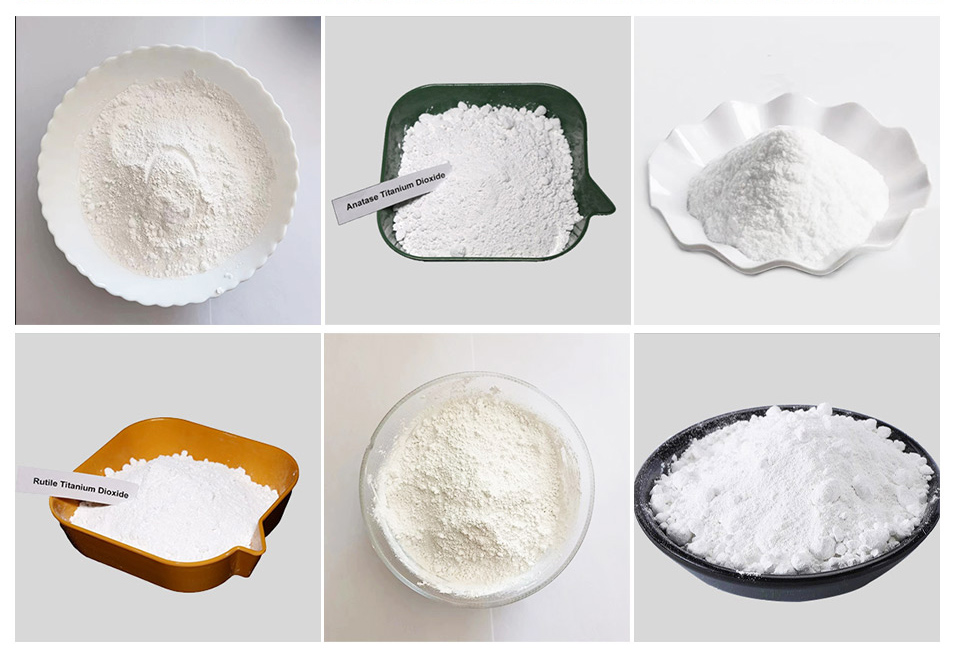
7 月 . 25, 2024 08:59 Back to list
Exploring the Applications of Titanium Dioxide in the Pharmaceutical Industry and Medical Technologies
The Use of Titanium Dioxide in the Pharmaceutical Industry
Titanium dioxide (TiO₂) is a versatile compound widely recognized for its excellent properties, such as non-toxicity, chemical stability, and high refractive index. These attributes render it an invaluable resource in various industries, including pharmaceuticals, cosmetics, and food. This article explores the critical role titanium dioxide plays in the medical field, particularly in pharmaceutical manufacturing and formulation.
Properties and Benefits of Titanium Dioxide
One of the most significant advantages of titanium dioxide is its exceptional safety profile. Unlike other compounds that may pose potential health risks, TiO₂ is generally regarded as safe (GRAS) by the U.S. Food and Drug Administration (FDA) when used in appropriate concentrations. This makes it suitable for various applications, including those involving direct human consumption or application, which is crucial in pharmaceuticals.
Additionally, titanium dioxide exhibits excellent UV-filtering properties. This characteristic is increasingly being leveraged in topical formulations such as sunscreens and wound care products, providing protection against harmful ultraviolet (UV) radiation. The capability of TiO₂ to scatter and reflect light is also beneficial, as it enhances the stability and efficacy of medicinal formulations that require UV protection.
Applications in Pharmaceuticals
1. Pigment and Opacifying Agent In the production of tablets and capsules, titanium dioxide is predominantly used as a pigment and opacifying agent. It helps improve the aesthetic appeal of pharmaceutical products by providing a white color that enhances their visual identity. Moreover, it improves the product's opacity, which is vital in preventing light from degrading sensitive active pharmaceutical ingredients (APIs).
use of titanium dioxide in medicine factory

2. Excipient In addition to its pigmenting properties, titanium dioxide serves as an excipient in various formulations. Excipient materials are crucial for drug delivery systems, affecting the way active ingredients are released and absorbed in the body. TiO₂ can enhance the flowability and compressibility of powders, crucial characteristics for the manufacturing process of solid dosage forms like tablets.
3. Stabilizer and Carrier Titanium dioxide also functions as a stabilizer and carrier in complex pharmaceutical formulations. Its ability to encapsulate active ingredients contributes to controlling the release profile of drugs, thereby ensuring that the medications deliver the desired therapeutic effect. This is particularly significant in designing sustained-release formulations that provide prolonged therapeutic activity.
4. Nanoparticle Applications With the advancement of nanotechnology, TiO₂ nanoparticles are emerging as a powerful tool in drug delivery systems and targeted therapy. Their small size and large surface area facilitate the encapsulation of drugs, improving bioavailability and therapeutic effectiveness. Moreover, TiO₂ nanoparticles can be engineered to provide photodynamic therapy against certain types of cancer, showcasing the compound's flexibility beyond traditional applications.
Safety and Regulatory Considerations
While titanium dioxide has numerous benefits, its usage must adhere to stringent regulatory guidelines. The pharmaceutical industry is heavily regulated, with agencies such as the FDA and the European Medicines Agency (EMA) overseeing the safety and efficacy of ingredients used in medicinal products. Manufacturers must ensure that the titanium dioxide used in their formulations meets the required purity standards and complies with the established regulations to safeguard public health.
Conclusion
Titanium dioxide is a critical component in the pharmaceutical industry, serving various functions from aesthetic enhancement to critical roles as an excipient and stabilizer. Its safety, efficacy, and versatility make it an essential material in drug formulation and delivery, contributing to the advancement of medicine. As research continues to explore new applications, titanium dioxide's role in pharmaceuticals is expected to expand, paving the way for innovative therapies and improved patient outcomes.
-
Lithopone for Plastic & TiO2 R-5568/SK-6658 Masterbatch Solutions
NewsMay.30,2025
-
China Leading Rutile TiO2 Manufacturer - R5566 & R996 Grades Available
NewsMay.30,2025
-
High-Purity Anatase & Rutile TiO2 Powder Trusted Manufacturer
NewsMay.30,2025
-
High-Purity Anatase Products Trusted Supplier & Manufacturer
NewsMay.29,2025
-
Best Price Eco-Friendly Rutile TiO2 Supplier & Wholesale Factory
NewsMay.29,2025
-
Chinese Anatase Titanium Dioxide for Ceramic Glaze Reliable Supplier
NewsMay.29,2025
